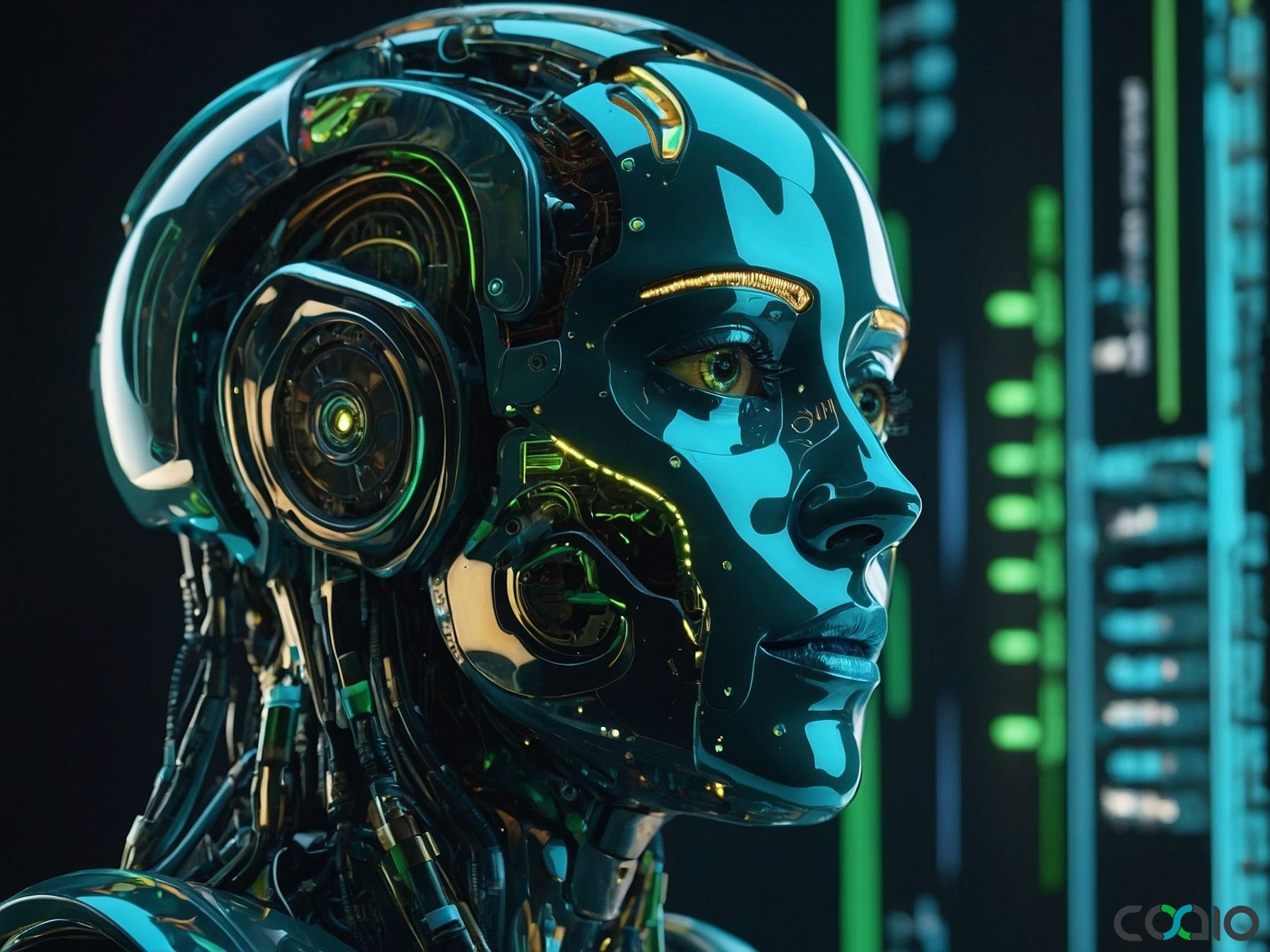
Revolutionizing Software Development: Key Innovations, Challenges, and AI Breakthroughs in 2025
As we dive into the dynamic world of technology on August 8, 2025, the software development landscape is buzzing with groundbreaking advancements, regulatory shifts, and strategic pivots from major players. From AI-driven tools accelerating innovation to political decisions reshaping funding, the industry is at a pivotal crossroads. This article explores the latest headlines, offering insights into how these developments could influence businesses and developers alike. With rapid technological evolution, staying informed is crucial for anyone involved in software creation, ensuring that organizations can adapt without falling behind.
The Push for Faster Tool Adoption in Software Development
In today’s fast-paced tech environment, businesses are under immense pressure to adopt new tools quickly while maintaining compliance and efficiency. A recent article from SD Times highlights the challenges and solutions in this area, emphasizing a developer experimentation framework designed to streamline the process. According to the report, traditional approval mechanisms often create bottlenecks, slowing down innovation in an era where speed is everything. For instance, regulations like FedRAMP and SOC-2 require rigorous standards, but these can delay the integration of cutting-edge tools that could enhance productivity.
The framework outlined in the piece involves a three-stage approach: first, rapid prototyping to test tools in a controlled environment; second, iterative feedback loops with stakeholders; and third, scalable implementation with built-in compliance checks. This method not only accelerates adoption but also minimizes risks associated with new technologies. As businesses grapple with these issues, the need for structured yet flexible strategies becomes evident. Developers can now experiment more freely, leading to faster iterations and better outcomes in software projects.
This trend underscores a broader shift toward agile methodologies, where companies prioritize experimentation to stay competitive. For example, organizations that have implemented similar frameworks report up to 30% faster deployment times, based on industry surveys. In a world where digital transformation is non-negotiable, such innovations are game-changers, allowing teams to respond swiftly to market demands and technological disruptions.
OpenAI’s Leap into Open Weight Models and AI Reasoning
Shifting gears to artificial intelligence, OpenAI has made waves with the release of two new open weight reasoning models, as detailed in another SD Times report. These models, gpt-oss-120b and gpt-oss-20b, represent a significant step toward democratizing AI technology. The gpt-oss-120b is tailored for high-reasoning tasks in production environments, while the gpt-oss-20b focuses on lower-latency applications, making it ideal for edge computing or local deployments. OpenAI claims these models match the performance of their proprietary counterparts, offering comparable capabilities at a fraction of the cost and complexity.
This move is particularly timely as AI integration becomes a staple in software development. Developers can now leverage these models for tasks like code generation, data analysis, and even automated testing, potentially reducing development cycles by weeks. The open weight design means that developers have greater access to the model’s architecture, fostering community contributions and customizations. However, this also raises questions about security and ethical AI use, as more accessible models could lead to misuse if not properly governed.
In the context of software development, these releases could revolutionize how teams build intelligent applications. For instance, startups working on AI-powered software can integrate these models to enhance features like predictive analytics or natural language processing. The SD Times article notes that early adopters have seen improvements in accuracy and speed, with one case study showing a 25% reduction in error rates for complex reasoning tasks. As AI continues to evolve, such advancements are poised to make software more intuitive and efficient.
Political Interference in Tech Funding and Its Ripple Effects
Beyond the tech giants, external factors like government policies are exerting influence on software development. Ars Technica reported on a new executive order that places all federal grants under political control, effectively halting new funding until the administration can review and potentially cancel existing ones. This development, announced recently, could have far-reaching implications for tech research and innovation, particularly in software engineering where grants often fuel experimental projects.
The order stems from a broader push for oversight, aiming to align funding with specific political priorities. For software developers and researchers, this means uncertainty in areas like AI ethics, cybersecurity, and sustainable tech. Projects that rely on grants for development tools or infrastructure might face delays or cancellations, potentially stifling progress in critical fields. According to the article, this could disproportionately affect smaller firms and academic institutions that depend on public funding to compete with industry leaders.
In the software development sector, this policy shift highlights the vulnerability of innovation to political climates. Developers working on compliance-heavy projects, such as those involving data privacy or AI governance, may need to pivot quickly to secure alternative funding. This situation underscores the importance of diversified resources, as over-reliance on grants could lead to stalled initiatives. As the tech community watches these changes unfold, it’s a reminder that external forces can shape the tools and technologies available for software creation.
Tesla’s Dojo Shutdown and the AI Talent Exodus
The software development world was shaken by news from TechCrunch about Tesla’s decision to shut down its Dojo AI training supercomputer project. Once hailed by Elon Musk as a cornerstone for achieving full self-driving capabilities, the project’s disbandment marks a significant setback for Tesla’s AI ambitions. This move follows the departure of around 20 employees who have formed their own venture, DensityAI, focusing on data center services for various industries.
Dojo was envisioned as a custom-built supercomputer to handle the massive data requirements for autonomous driving software. Its shutdown raises questions about resource allocation in AI development, especially as Tesla reallocates efforts toward other priorities. TechCrunch’s report links this decision to internal challenges, including talent retention and shifting market demands. The former employees’ new company, DensityAI, is already positioning itself to fill gaps in AI infrastructure, offering services that could benefit software developers working on large-scale data processing.
This event illustrates the fluid nature of tech innovation, where projects can pivot or dissolve based on strategic needs. For software developers in the AI space, it serves as a cautionary tale about the risks of over-investing in proprietary tech. As AI continues to intersect with software development, the exodus of talent highlights the importance of fostering environments that retain expertise, ensuring that advancements in areas like machine learning don’t grind to a halt.
Rocket Lab’s Strategic Acquisition for Defense and Space Tech
Expanding the scope to broader tech ecosystems, Rocket Lab’s recent acquisition, as covered by TechCrunch, positions the company as a full-spectrum player in space technology. By acquiring a firm specializing in end-to-end space services, Rocket Lab is eyeing significant opportunities in defense applications, from satellite launches to advanced software for mission control.
While not directly tied to software development, this move has implications for developers working in aerospace tech. Rocket Lab’s expansion could lead to increased demand for specialized software tools, such as simulation software or data analytics platforms, to support defense projects. The acquisition enhances their capabilities in areas like payload integration and orbital operations, potentially creating new avenues for software innovation in secure, high-stakes environments.
As reported, this strategic play reflects a growing trend where space tech firms integrate software development to streamline operations. Developers in this niche might find new collaboration opportunities, particularly in creating resilient systems that can withstand the demands of defense contracts. This development adds another layer to the software landscape, showing how interdisciplinary advancements can drive progress.
In wrapping up this exploration of the latest tech news, it’s inspiring to think about how these innovations align with a vision for empowering creators. Imagine a world where software development is streamlined, risks are minimized, and ideas flourish without bureaucratic hurdles—like a well-orchestrated symphony where every note builds toward success. That’s the essence of turning bold visions into reality, focusing on core ideas while navigating the tech world’s complexities with efficiency and creativity.
About Coaio
Coaio Limited is a Hong Kong-based tech firm that specializes in outsourcing software development and building expert teams in Vietnam. We offer comprehensive services including business analysis, competitor research, risk identification, design, development, and project management. By delivering cost-effective, high-quality software solutions with user-friendly designs, we help startups and growth-stage companies in the US and Hong Kong focus on their core vision while we handle the technical heavy lifting, minimizing risks and maximizing efficiency.
 English
English
 Français
Français
 Español
Español
 廣東話
廣東話
 中文
中文
 日本語
日本語
 한국어
한국어
 العربية
العربية
 Deutsch
Deutsch

